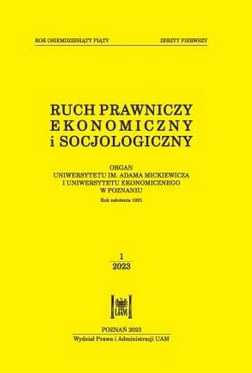ECONOMIC INTEGRATION IN THE FACE OF NEW CHALLENGES FOR THE EUROPEAN ECONOMY
ECONOMIC INTEGRATION IN THE FACE OF NEW CHALLENGES FOR THE EUROPEAN ECONOMY
Author(s): Łukasz Markowski, Rafał WarżałaSubject(s): Supranational / Global Economy, Economic history, Economic policy, EU-Approach / EU-Accession / EU-Development
Published by: Uniwersytet Adama Mickiewicza
Keywords: economic history; European integration; confederation; federation;
Summary/Abstract: Recent events in the world economy, such as the pandemic and the war in Ukraine, have special implications for the countries that are part of the most advanced integration group in the world – the European Union (EU). In order to face new challenges, the EU must constantly evolve, because leaving the structure unchanged could mean stagnation and collapse. The paper aims to assess the functioning of the European Union in the conditions of the new ‘post-pandemic’ reality and the consequences of the war in Ukraine, and to review the prospects for further integration. The paper uses a diagnostic approach that involves establishing the actual state of affairs, assessing it, and considering the possibility of its improvement. As a result of the considerations undertaken, it can be assumed that the stability (and even the survival) of the EU seem to be favoured more by integration initiatives referring to the neo-functional theory and federal approach rather than the confederal approach. It is justified to increase the role of the political spill-over effect and the assumptions of heterodox economics. Historical experience leads to the conclusion that failure to take appropriate initiatives may trigger the disintegration mechanism and, consequently, the collapse of the European integration project.
Journal: Ruch Prawniczy, Ekonomiczny i Socjologiczny
- Issue Year: 85/2023
- Issue No: 1
- Page Range: 225-238
- Page Count: 14
- Language: English

